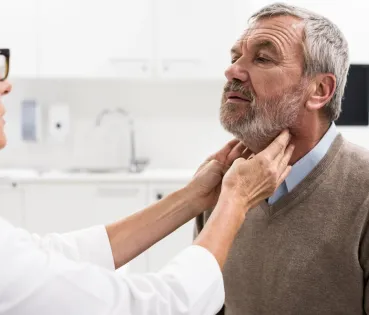
Change of season. Who should take more care alert?
The head, neck, hands and feet are the body areas that get cold easiest
The drop in temperatures and spending more time in closes spaces encourage the appearance of colds, ‘flu and other respiratory infections which can also complicate other pre-existing pathologies. Therefore, it is important to take steps to avoid these typical illnesses more prevalent in the coldest months of the year, particularly if we are talking about the population at risk. And the fact is that although anyone can become ill, those over the age of 65 years, pregnant women, babies and small children, the homeless or people with chronic illnesses are more likely to suffer from one of these seasonal pathologies or for it to become more complicated, turning into a more serious health problem.
Young children
During the winter, viruses affect many children and babies because their immune systems have yet to develop completely, in addition to the fact that they breathe through their mouths and they use their hands for playing. For this reason, when any symptom of a cold or another respiratory disease appears, it is important to avoid taking them to school or nursery in order to not spread the virus. It is also advisable to not spend much time with them in closed places such as shopping centres. Children who are most susceptible to suffering from respiratory diseases in the wintertime are prematurely-born babies, asthmatics or who have asthma in the family and those suffering from allergies.
The elderly
Regarding people over the age of 65 years, close attention must be paid to their state of health and making sure that they are in the warmest rooms of the house. Another way of helping older people to warm up is to include hot food in their normal diet such as soups or broths, which provide them with calories and prevent dehydration. Being vaccinated against ´flu is also an important preventive step. When they go outside, they must wear warm clothing and protect their necks.
Pregnant women
The greater circulation of viruses in the winter should not affect pregnant women too much. It is important for women with high blood pressure caused by pregnancy or made worse during these months, to take care when becoming exposed to cold. In a pregnant woman, her blood pressure should be, approximately, 120/80. If this rises, the woman should keep a careful watch on it and consult with her doctor. In addition, this risk group should not come into contact with ill people and other people must avoid smoking in front of them. Vaccination against ‘flu is also recommended.
Chronic or immune-compromised patients
In order to ride out the cold and possible respiratory infections which, in chronic patients may lead to serious health problems, they must be vaccinated and particularly protect their heads, necks, hands and feet. These are the areas of the body that become cold due to heat loss. Additionally, when the thermometers plummet, it is always better to wear several layers of clothing than a single one, although this is thick. In this way, pockets of warm air are formed that insulate the organism against the cold. Tobacco smoke and excess steam in kitchens also affect those who suffer from any chronic respiratory or heart disease.




